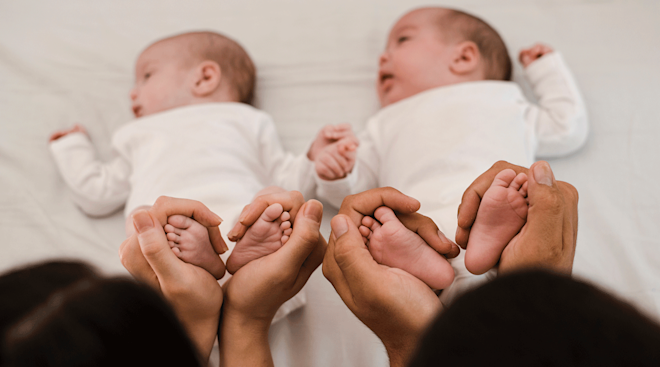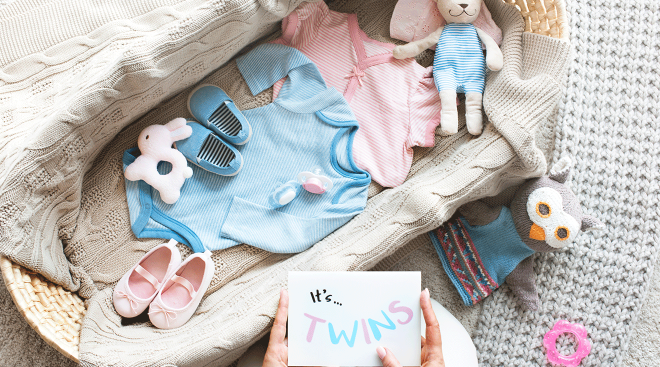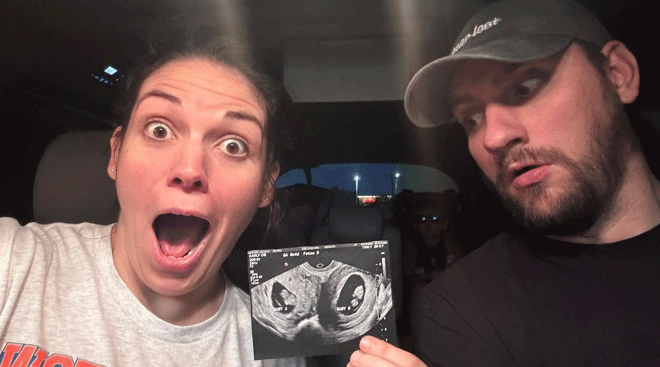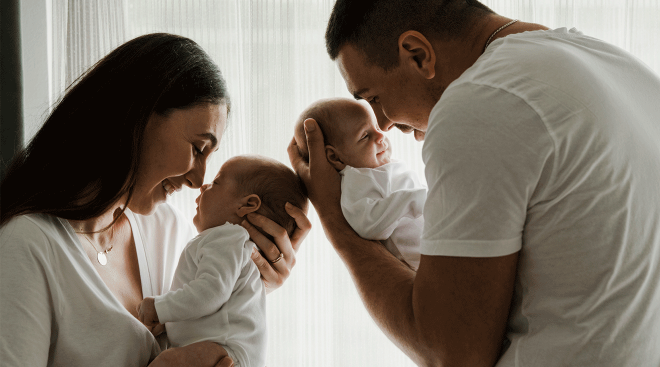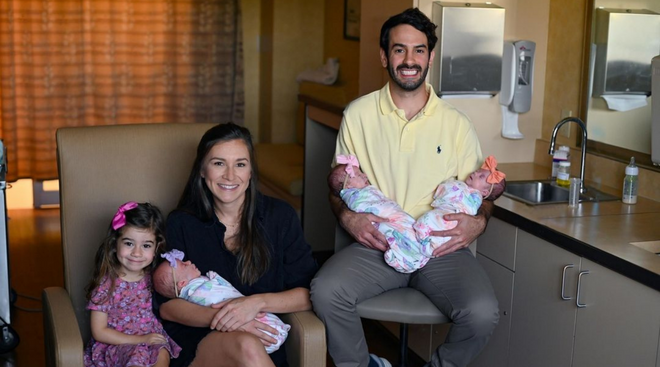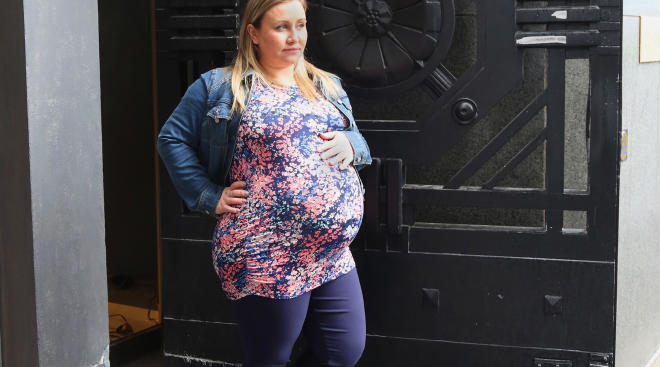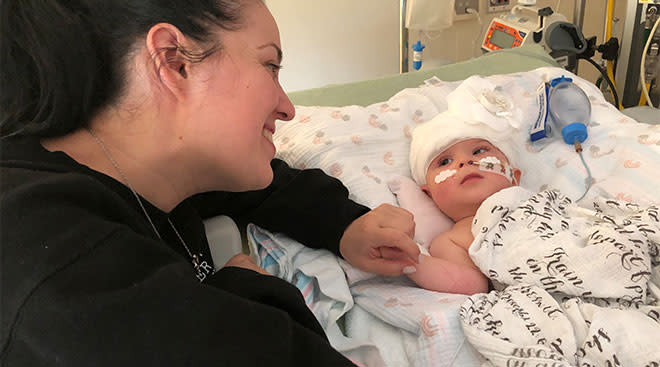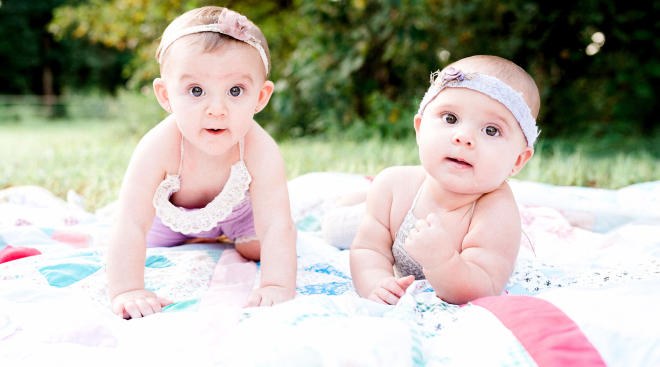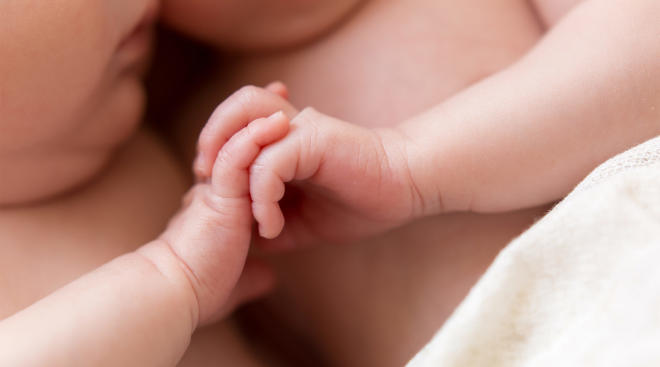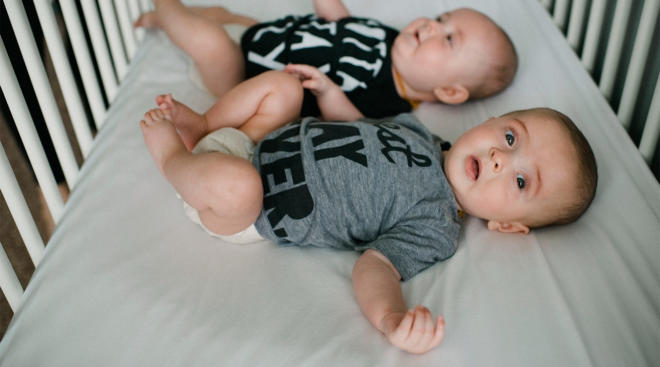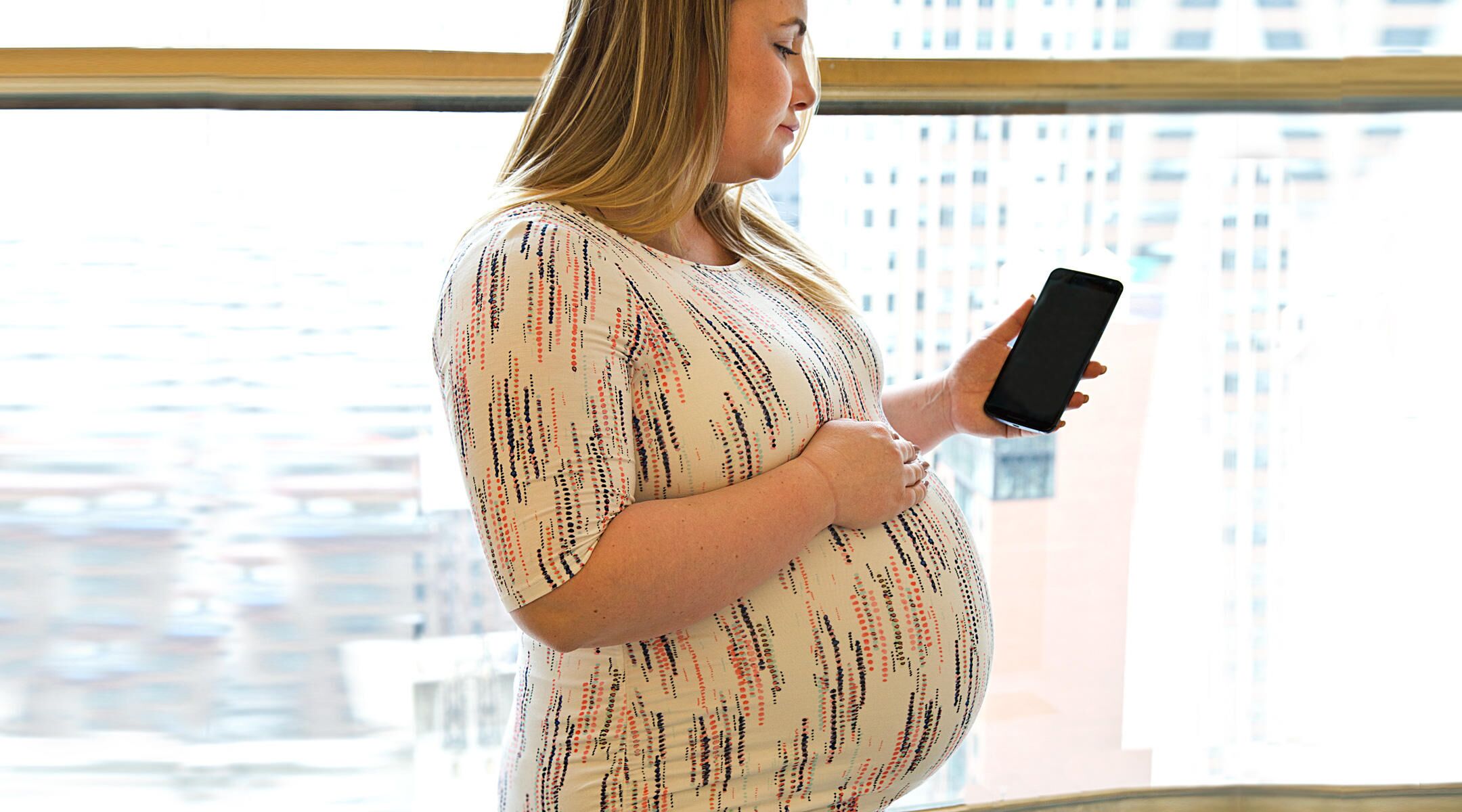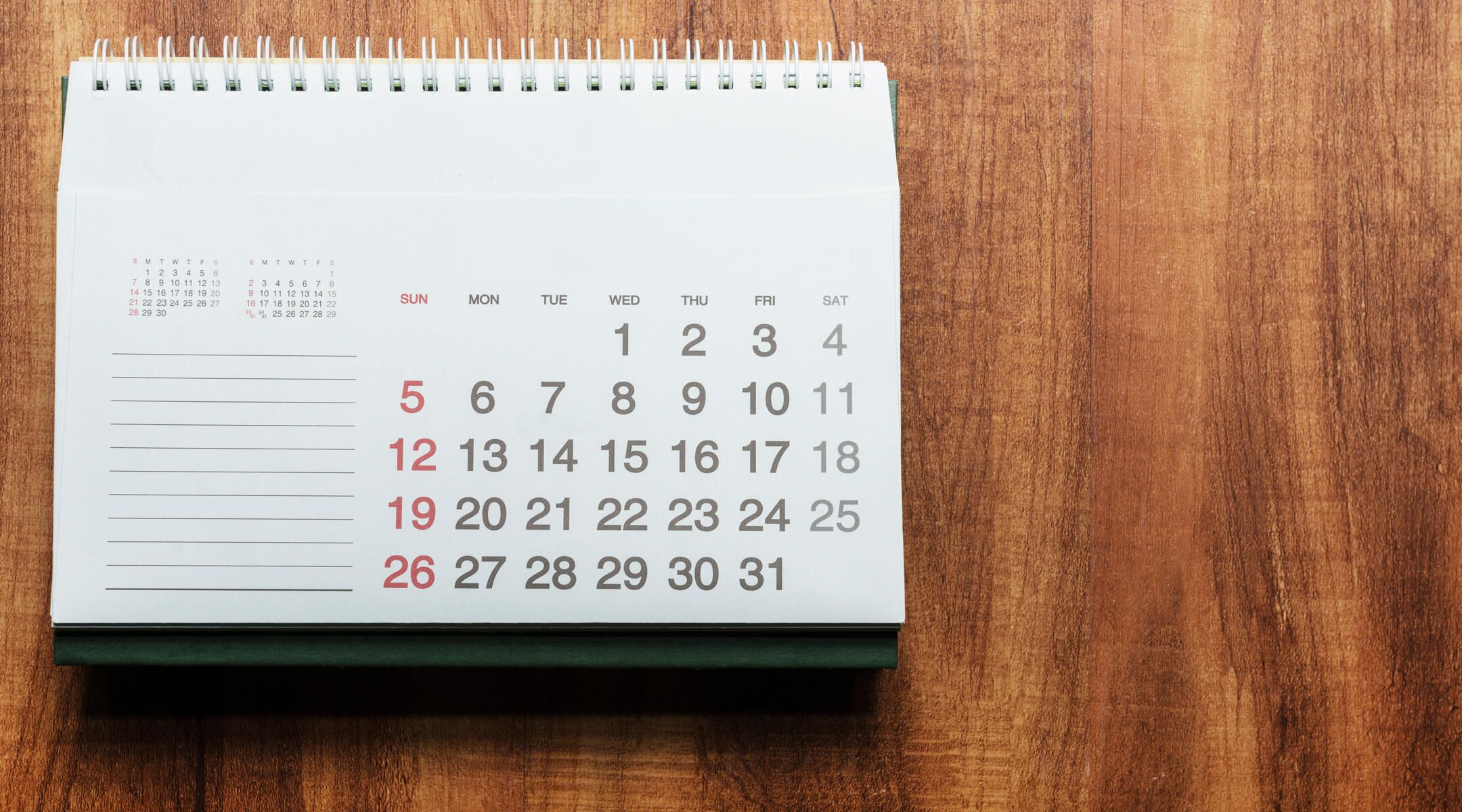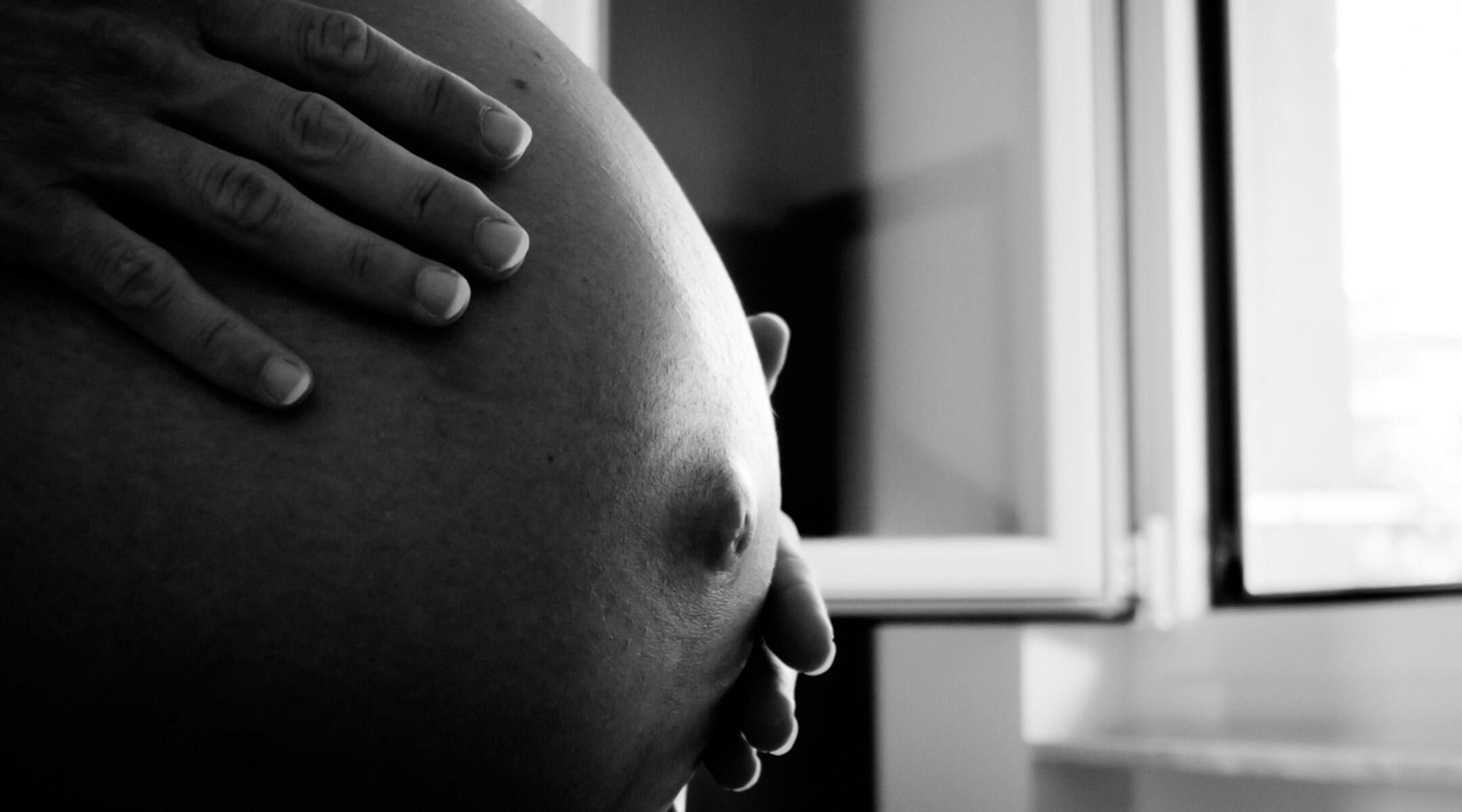Questions to Ask Your Doctor if You're Having Twins
First things first, you’ll want to find out what kind of twins you’re having. Not only will that help you know what to expect, but it’ll also help ensure that you and your babies get the proper medical care.
As Christina Han, MD, explains, if you ovulate two eggs and they’re both fertilized, the twins would be “dizygotic”—otherwise known as “fraternal,” because they’re genetically different. A twin that results from the division of a single embryo would be “monozygotic”, or “identical” (although it doesn’t necessarily mean they’ll look identical).
It’s also important to determine whether the twins share a placenta or amniotic sac, Han says. There are three possibilities:
-
Dichorionic-diamniotic twins have separate placentas and each have their own amniotic sac, meaning the babies are completely separated.
-
Monochorionic-diamniotic twins share a placenta but have separate sacs. That means the twins won’t get tangled up in each other, but they may share the space unequally.
-
Monochorionic-monoamniotic twins share both the placenta and the sac, so the babies could potentially become entangled.
By nature, more health issues are taken into consideration during multiple pregnancies, since they’re at an increased risk for certain complications. Monochorionic twins (those that share a placenta) in particular need a little extra attention.
But don’t let that stress you out, says Karen Moise, RN. Knowing the right questions to ask will help you take preventative measures to successfully detect—and correct—potential complications. Here are the top five questions you should ask your doc:
-
Does each baby have its own placenta and amniotic sac?
Babies who share a placenta and amniotic sac need to be watched closely to ensure they remain healthy in their shared space. -
When should I see a maternal-fetal medicine specialist?
These MDs have received higher levels of training specifically for high-risk pregnancies and can help ensure you’re being monitored appropriately. Every twin pregnancy should be evaluated at least once by a specialist to rule out any anomalies. -
Are my babies the same size?
Your babies should grow at about the same rate. If one’s smaller than the other, this may be a sign of distress. -
What is my cervical length?
This is something that’s often overlooked by many doctors. A thinning or shortening cervix can be a telltale sign of a problematic pregnancy. -
How will I be delivering the babies?
A vaginal birth vs. cesarean delivery will largely be determined by how the twins are positioned and if there are any complications. But it’s still helpful to discuss your birth plan earlier in the pregnancy, since some providers will only offer cesarean deliveries for certain types of twins.
Above all, don’t be afraid to call or email your doctor with any questions or concerns—they’re there to help.
Expert Sources:
Christina Han, MD, Center for Fetal Medicine and Women’s Ultrasound; Voluntary Clinical Faculty at the University of California Los Angeles; Adjunct Assistant Professor at Yale University.
Karen Moise, RN, Texas Children’s Fetal Center.
Navigate forward to interact with the calendar and select a date. Press the question mark key to get the keyboard shortcuts for changing dates.

































